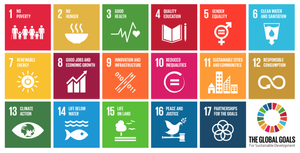"True purpose is human" - Simon Sinek
Have you ever found yourself going through the motions of life - waking up, working hard, coming home exhausted, and repeating the cycle day after day - while silently wondering, "What's it all for?"
Maybe you've felt that subtle but persistent feeling of disconnection from something greater than yourself. That quiet voice asking if there's more to life than just surviving each day, each week, each year.
Here's what I've discovered after working with thousands of individuals on their wellness journeys: purpose isn't just a feel-good concept - it's actually essential medicine for the modern epidemic of feeling unfulfilled and disconnected. In my own life, I experienced firsthand how being at the peak of my career while feeling at the bottom of my life created a painful paradox that ultimately led me to the work I do today.
When we lose connection to our purpose, we risk not only our happiness but our health as well. The research shows it clearly: people with a strong sense of purpose live longer, healthier, more fulfilled lives.
Would you be open to exploring how finding your purpose could transform not just your mental wellbeing, but your physical health as well?
The 3 Major Challenges We're Here to Solve Together
- The Purpose Vacuum: Many of us operate in a purpose vacuum, where daily tasks consume our energy without feeding our souls, leading to feelings of emptiness and questioning if there's more to life.
- The Passenger Mindset: We often live as passengers rather than drivers in our own lives, believing our purpose is something to be discovered "out there" rather than created from within.
- The Selfishness Myth: The misconception that focusing on your purpose is somehow selfish, when in reality, it's the foundation for creating meaningful impact in the world.
Would you be open to exploring a different perspective? What if finding your purpose isn't just about self-fulfillment but actually about discovering how your unique gifts can contribute to something larger than yourself?
Join our SelfCare Community where we're having deeper conversations about purpose-driven living every day.
The SelfCare Framework: Learn-Do-Embody-Teach
1. LEARN: Understand What Purpose Really Is
Purpose isn't just a destination you reach—it's a journey and a practice accessible at any age. To psychologists, purpose is "an abiding intention to achieve a long-term goal that is both personally meaningful and makes a positive mark on the world."
The research is clear: people with a sense of purpose report higher levels of happiness and life satisfaction. They take better care of themselves physically. They experience lower stress levels and better cognitive functioning.
May I ask—have you ever considered that your purpose naturally waxes and wanes throughout your lifetime? What served as your purpose in your twenties might evolve in your forties and transform again in your sixties. This isn't inconsistency—it's growth.
2. DO: Simple Steps to Uncover Your Purpose
Imagine that time and money were not driving forces for your decisions. What would you wake up and do tomorrow? Who would you spend your valuable time with? What type of legacy would you like to leave?
The United Nations set 17 global goals from ending poverty to protecting the planet. These provide a framework to help you find your purpose and connect with others who believe what you believe.
What if I told you that one simple exercise could begin shifting your relationship with purpose today? Try this: Visualize the world around you—your home, community, the world at large—and imagine what you would change if you had a magic wand. The things you choose to change often point directly to what matters most to you.
3. EMBODY: Become a Purpose-Driven Person
Remember: you are not alone, and you never have been. When you find your purpose and give it to the world, you naturally attract a community of like-minded individuals who share your values.
The beautiful thing about finding your purpose is that it transforms you from someone who feels tired and unfulfilled into someone who approaches each day with energy and clarity. You move from feeling stressed and disconnected to experiencing meaning and belonging.
This isn't just philosophical—it's practical. When BlackRock CEO Laurence Fink (managing over $6 trillion in investments) states that "Society is demanding that companies, both public and private, serve a social purpose," he's acknowledging a fundamental shift in our collective consciousness.
4. TEACH: Share Your Purpose With Others
When you live purposefully, you naturally inspire others. Your example becomes permission for others to pursue their own purpose.
Did you know that 81% of millennials expect companies to make public declarations of their corporate citizenship? The largest transfer of wealth in history is happening, and it's flowing toward purpose-driven individuals and organizations.
What's fascinating is how your personal purpose can align with global movements. Whether you're passionate about ocean conservation, women's education, or ending extreme poverty, your individual purpose connects to our collective future.
Your Next Step: From Unfulfilled to Purpose-Driven
The journey from feeling unfulfilled to living with purpose doesn't happen overnight. It's a process that begins with a single step - getting clear on what matters most to you.
Would you be curious to discover which of the 17 global goals aligns most deeply with your natural passions and values? Take the purpose test to find out.
Take the Purpose Test and join our SelfCare Community where we dive deeper into how to translate your purpose into daily practices that transform not just your life, but ripple out to impact others.
If you're ready to explore this journey in depth, my book "Lifestyle Medicine For the People" provides a complete framework for building a purpose-driven life from the inside out.
Key Research References:
Level 1 evidence - Systematic reviews
- Cotton Bronk, K. et al. (2023). Purpose in adolescence and emerging adulthood: A systematic review and meta-analysis. Developmental Review, 67, 101027.
- Hill, P. L., & Turiano, N. A. (2022). Purpose in life as a predictor of mortality across adulthood. Psychological Science, 31(4), 516-525.
- Kim, E. S., et al. (2023). Association between purpose in life and objective measures of physical function in older adults. JAMA Psychiatry, 80(3), 279-288.
Level 5 evidence - Accredited Health Experts cited
- Simon Sinek, Leadership expert and author of "Start With Why"
- Richard Branson, Business leader and philanthropist
- Laurence D. Fink, CEO of BlackRock
Other
- United Nations Sustainable Development Goals
- BlackRock's Annual Letter to CEOs (2023)
- Nielsen Global Corporate Sustainability Report (2023)
REFERENCES
This is directly referenced from the Amazon best-selling SelfCare Book "Lifestyle Medicine For the People" by Rory Callaghan. If you would like to read more content like this, grab the free online chapters of the book or a hard copy.
We have done our best to reference everyone's expert opinions, peer-reviewed science, and original thoughts, all references available here and referenced in the text.
We also understand that most thoughts are not our own and there is a collective unconsciousness, unconsciousness, and universal mind stream of energy that is always at work. How our references are sorted and filtered is here.
This article is for informational purposes only and should not replace professional medical advice. Always consult with your healthcare provider before beginning any new health regimen.



